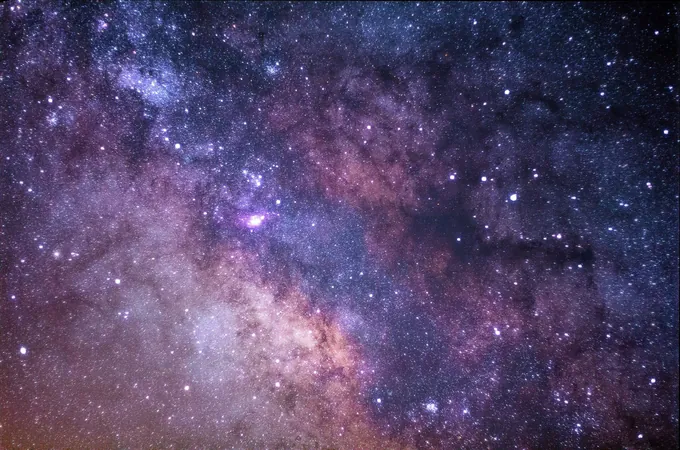
Is the Big Crunch Back on the Table? Shocking New Predictions About the Universe's Fate!
2025-07-06
Author: Emma
For eons, humanity has stared into the vast night sky, pondering a haunting question: What will ultimately happen to our universe? Will it drift indefinitely into the frigid void of space, or will it end with a spectacular finale?
A groundbreaking study emerging from the minds of physicists at Cornell University, Shanghai Jiao Tong University, and others has shed light on this enduring mystery, providing a surprisingly detailed answer.
Utilizing data from top-tier astronomical surveys like the Dark Energy Survey and the Dark Energy Spectroscopic Instrument, these researchers have modeled a startling hypothesis: our universe could meet its end in a "Big Crunch" roughly 33.3 billion years from now. To put that in perspective, given that the universe is currently 13.8 billion years old, we have about 20 billion years left before the cosmic curtain falls!
This revelation throws a wrench into the long-standing belief that the universe would expand forever. Instead, it posits that after reaching its peak expansion in about 7 billion years, the universe will begin to contract, collapsing back into a singularity.
At the heart of this paradigm shift lies the enigmatic dark energy, a potent force constituting about 70% of our universe and propelling its expansion.
Traditionally viewed as a steady pressure akin to a cosmological constant, recent observations hint that dark energy might actually be more dynamic. The researchers propose a novel model featuring a lightweight particle known as an axion, coupled with a negative cosmological constant.
Imagine a colossal rubber band: the universe initially expands as this "rubber band" stretches. Yet, eventually, the elastic energy becomes so strong that it pulls everything back together with a snap.
According to the model, the universe will continue to expand, albeit at a diminishing rate, until it reaches its ultimate size—approximately 69% greater than today—in about 7 billion years. Following that, gravitational forces and the negative cosmological constant will trigger a gradual contraction, accelerating into a rapid collapse in the universe's final moments.
However, it's crucial to note that this ambitious forecasting is fraught with uncertainty. The researchers caution that their model comes with substantial margins of error due to the limited data available. The validity of the negative cosmological constant driving this theory remains highly speculative, and other scenarios, including the possibility of eternal expansion, are still on the table.
What makes this research especially thrilling is that we may soon have the means to test it. Several significant astronomical projects set to launch in the coming years will offer more precise measurements of dark energy, potentially confirming, refining, or even dismissing the Big Crunch scenario altogether.
Even if this prediction holds true, a 20 billion-year countdown hardly signals impending doom. To put it in context, complex life on Earth has flourished for a mere 600 million years. A staggering 20 billion years means that long before any cosmic collapse occurs, our sun will have perished, and our galaxy will have merged with Andromeda.
Nonetheless, this research marks a monumental leap forward in our comprehension of the cosmos. For the first time, scientists have formulated a specific, testable prediction regarding the universe's ultimate fate, delivering a tangible timeline for perhaps the grandest event imaginable: the end of everything.









 Brasil (PT)
Brasil (PT)
 Canada (EN)
Canada (EN)
 Chile (ES)
Chile (ES)
 Česko (CS)
Česko (CS)
 대한민국 (KO)
대한민국 (KO)
 España (ES)
España (ES)
 France (FR)
France (FR)
 Hong Kong (EN)
Hong Kong (EN)
 Italia (IT)
Italia (IT)
 日本 (JA)
日本 (JA)
 Magyarország (HU)
Magyarország (HU)
 Norge (NO)
Norge (NO)
 Polska (PL)
Polska (PL)
 Schweiz (DE)
Schweiz (DE)
 Singapore (EN)
Singapore (EN)
 Sverige (SV)
Sverige (SV)
 Suomi (FI)
Suomi (FI)
 Türkiye (TR)
Türkiye (TR)
 الإمارات العربية المتحدة (AR)
الإمارات العربية المتحدة (AR)